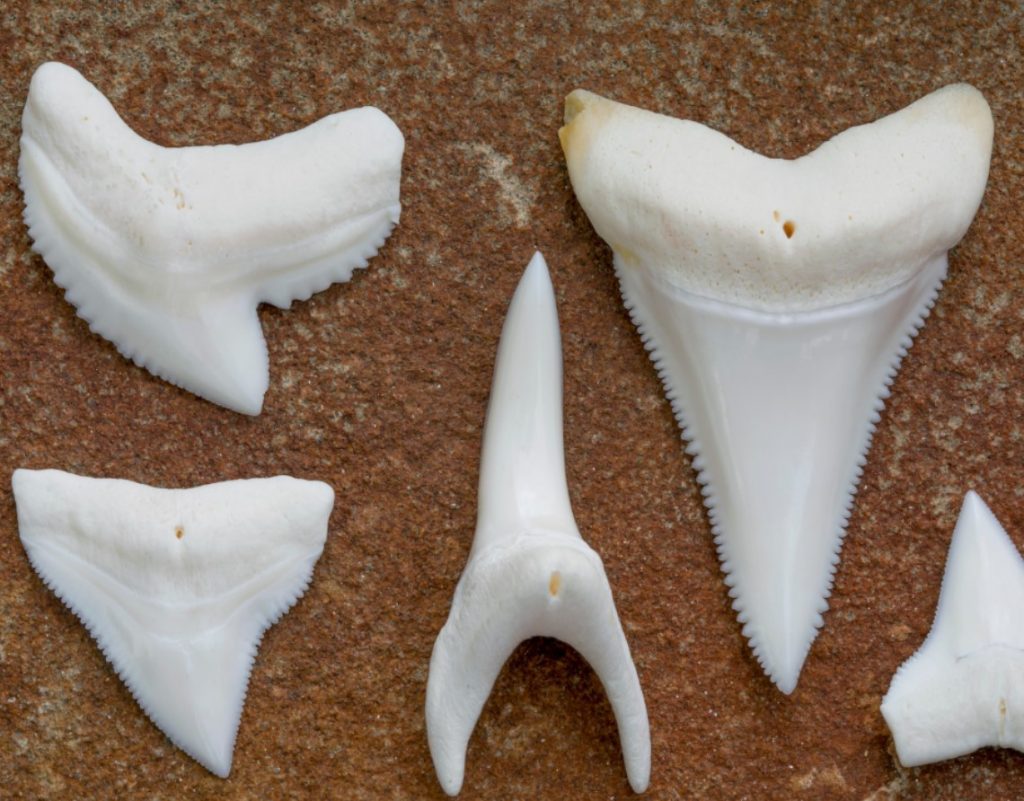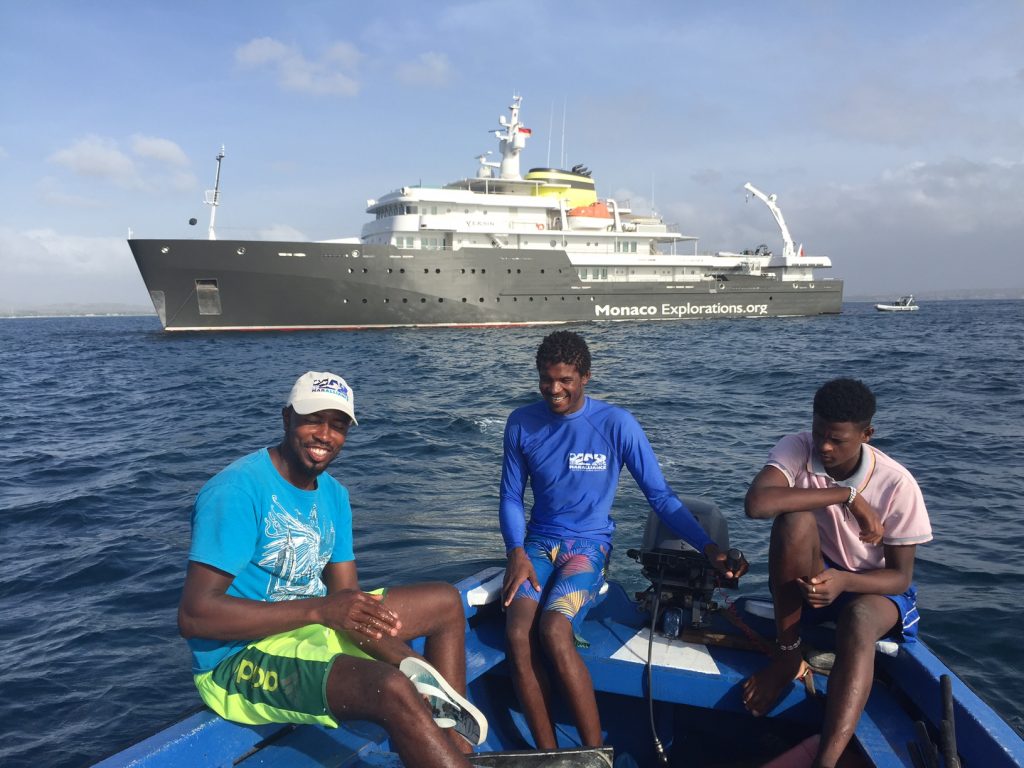
Our team of conservationist scientists and fishers loves boats. We love them. Big or small, but preferably trustworthy. They are a key vehicle to our objective of finding, studying and conserving fish. We usually work out of rather small boats 6-7 meters long outfitted with outboard engines that one can only work in during preferably good seas, so when the invitation to work with Monaco Explorations off of a large research vessel in generally unexplored waters popped into our inbox, we gasped with delight.
Fast forward several months and we are actually working off of said vessel, whose use for research during a three year circum-tropical exploration mission was recently inaugurated by the Prince Albert II of Monaco. Named after a famous doctor who identified the plague, Monaco Exploration’s motor yacht is named the Yersin; it measures 74 meters long, has three tenders, a back wet deck, wet and dry labs, lots of fabulous cold storage and a computer room. And everything is rounded off by beautifully outfitted cabins with chic moderne decor, splashes of art nouveau and ancient mariner trinkets. It has been a huge treat for our crew to be able to easily take a shower after hours at sea, be fed by the ship’s two super cooks and sleep in such comfy beds while in the “field”.
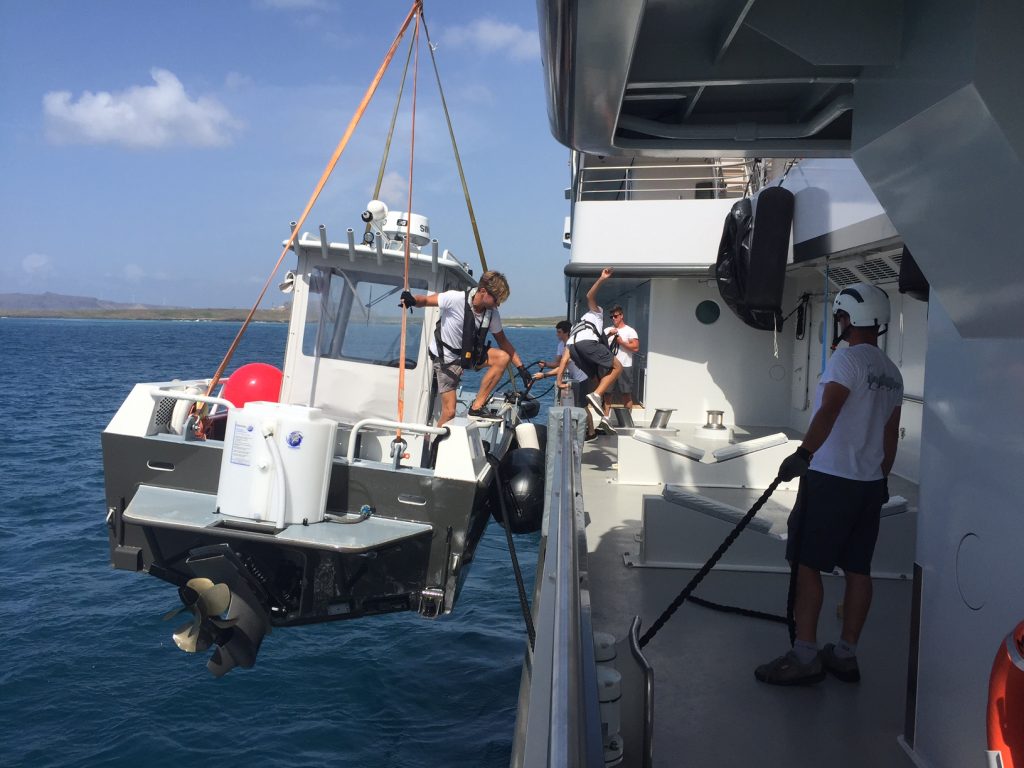
But we digress (so easy to do on this boat…did we mention we love big comfy boats?), we’re all here to explore and advance science and understanding of fish, and these are exactly some of objectives for working in Cabo Verde. With four scientific teams (MarAlliance, University of Montpellier, ZSL and SpyGen) and traditional Cabo Verdian fishers collaborating to better understand the diversity and abundance of marine megafauna (large fish, turtles and cetaceans), we are focusing on the capture and tagging of sharks and the in-water tagging of megaplanktivores (manta rays and whale sharks) to better understand their use of the island’s seas, notably in relation to the coastal and offshore industrial fishing fleet that overlap with many of the animals habitats.
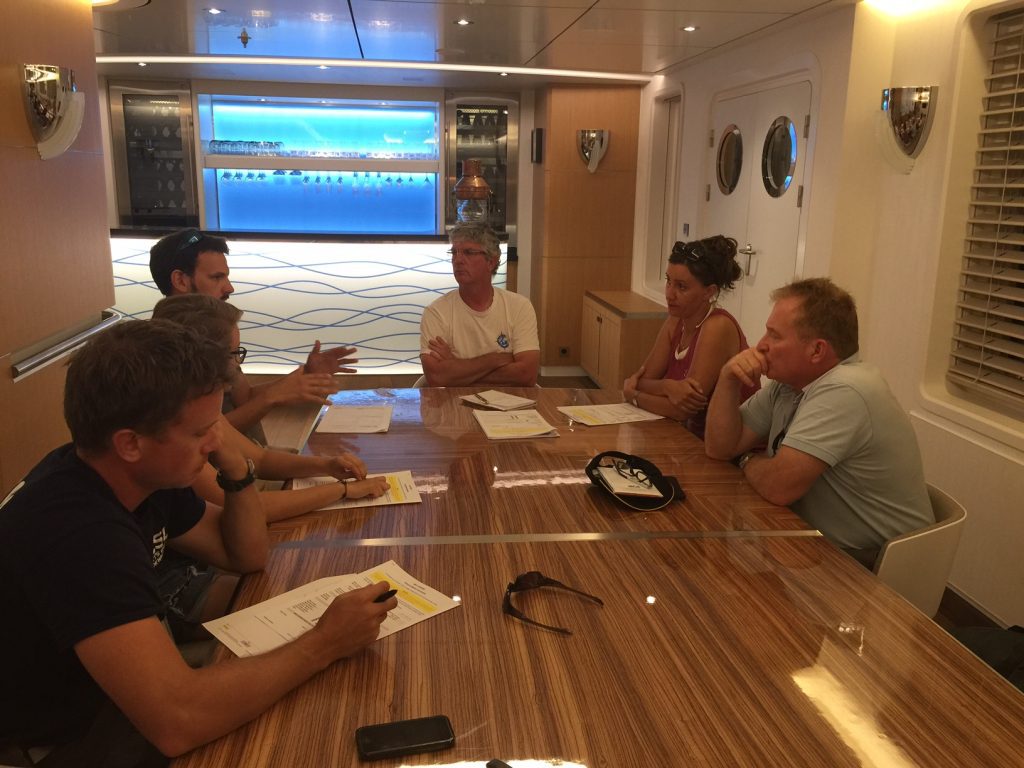
Our voyage of discovery has just begun but we’re off to a promising start with the tagging of two manta rays with satellite tags. We look forward to sharing more of the expedition details and keeping all of our team – and this includes you, our readers and supporters – apprised of our discoveries in upcoming posts and via our Facebook and Instagram feeds when at sea internet permits. Until then, happy motoring.
